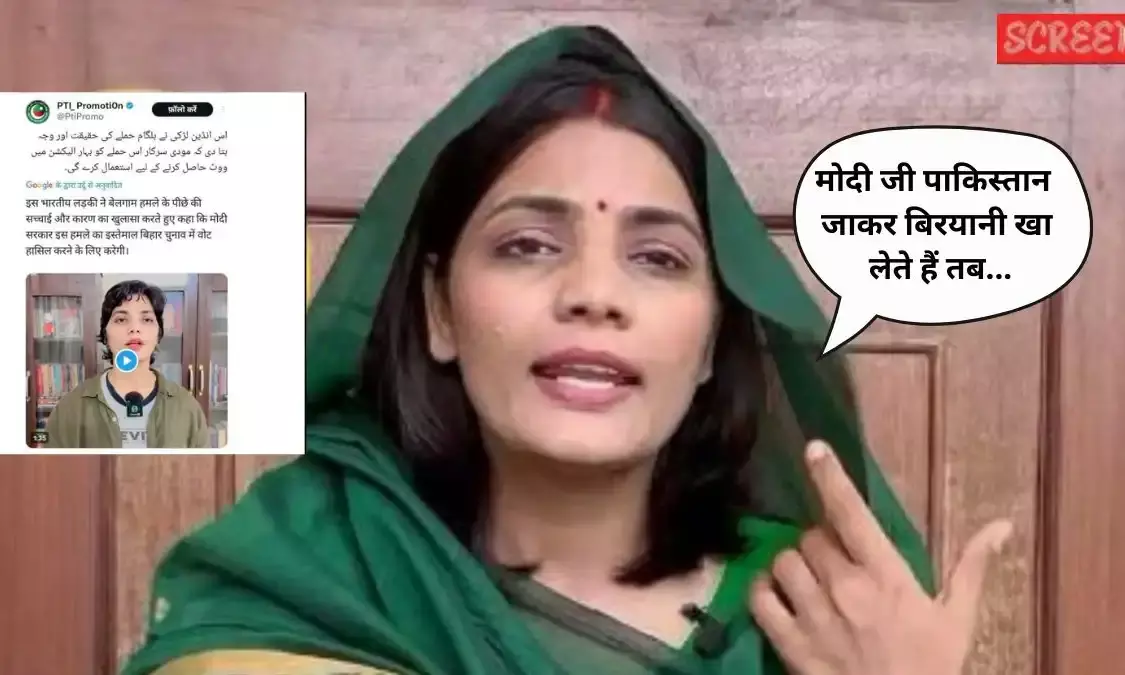The Controversial Voice of Neha Singh Rathore: Politics, Terrorism, and Social Responsibility
Neha Singh Rathore's bold statements on the Pahalgam terror attack have ignited discussions about politics, accountability, and social responsibility in India.;

In the aftermath of the recent Pahalgam terror attack, a sense of outrage has swept across India. The incident has sparked heated discussions about government accountability, national security, and the political implications of such tragedies. One voice that has risen to prominence in this discourse is that of Neha Singh Rathore, a Bhojpuri folk singer who has not shied away from criticizing the government. Through her candid commentary, she has managed to capture the attention of not just the Indian populace, but also international audiences, including those in Pakistan.
Who is Neha Singh Rathore?
Neha Singh Rathore is known for her powerful songs that often reflect social issues. Her latest video addressing the Pahalgam attack has gone viral, particularly after being amplified by various social media channels. In her video, she asserts that the government may exploit this attack for electoral gain in the upcoming Bihar elections. She argues that this is a tactic to distract from pressing issues such as education, health, and unemployment. Rathore's statements resonate with many who feel disillusioned about the political landscape.
In her viral video, Rathore poses poignant questions about the government's preparedness to protect citizens. She challenges the notion that questioning government actions is unpatriotic, stating, "As a citizen, I have the right to question my government, and it is my duty to hold them accountable." This perspective has drawn mixed reactions, with some praising her bravery while others label her a traitor. Rathore emphasizes that merely asking questions is an essential part of democracy.
The Pahalgam attack has intensified existing sentiments against Pakistan, leading many to demand swift action from the Indian government. However, Rathore's assertions have sparked a debate about the government's handling of security and its tendency to politicize tragedies for electoral advantage. She argues that if the focus shifts to politics, the real issues affecting the people will be sidelined. This is a sentiment echoed by many who believe that the root causes of terrorism must be addressed rather than exploited for votes.
Rathore's criticisms extend beyond just the recent attack. She has consistently questioned Prime Minister Modi's administration on various fronts, including the efficacy of their security measures. In her video, she highlights the lack of immediate medical assistance for victims during the attack, raising concerns about the adequacy of emergency services in high-risk areas. These inquiries prompt important discussions about governmental responsibilities and the safety of citizens.
As Rathore's video continues to circulate, it has become a flashpoint for discussions about dissent in India. While some view her as a voice of reason advocating for accountability, others see her as undermining national unity. This division highlights the complex dynamics of politics, patriotism, and public discourse in contemporary India. The Pahalgam attack serves as a reminder of the ongoing challenges the country faces, both in terms of security and in fostering an environment where questioning authority is acceptable. Neha Singh Rathore's role in this narrative underscores the importance of dialogue in a democratic society, reminding us that asking questions is not just a right, but a responsibility.

